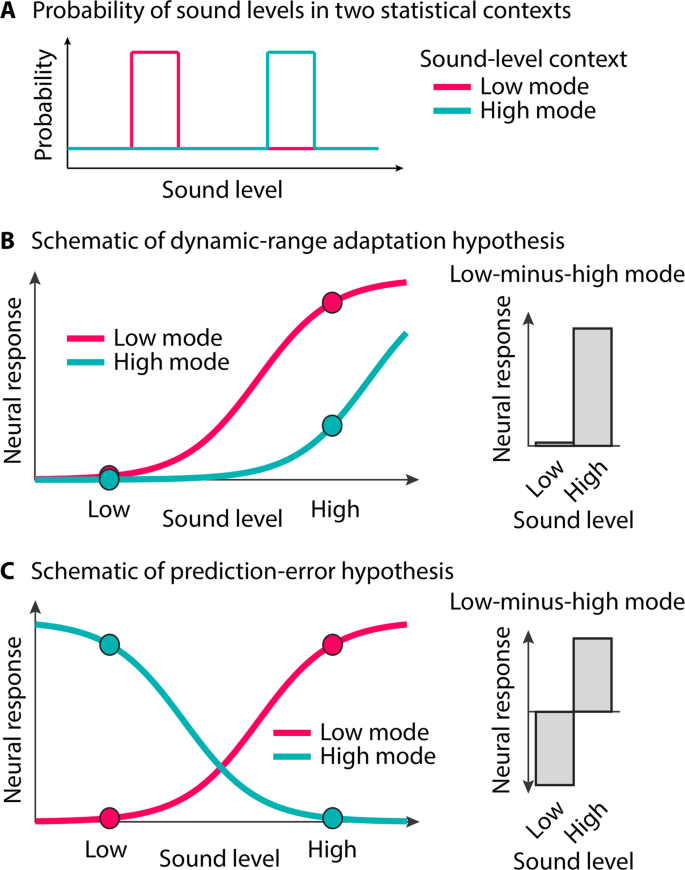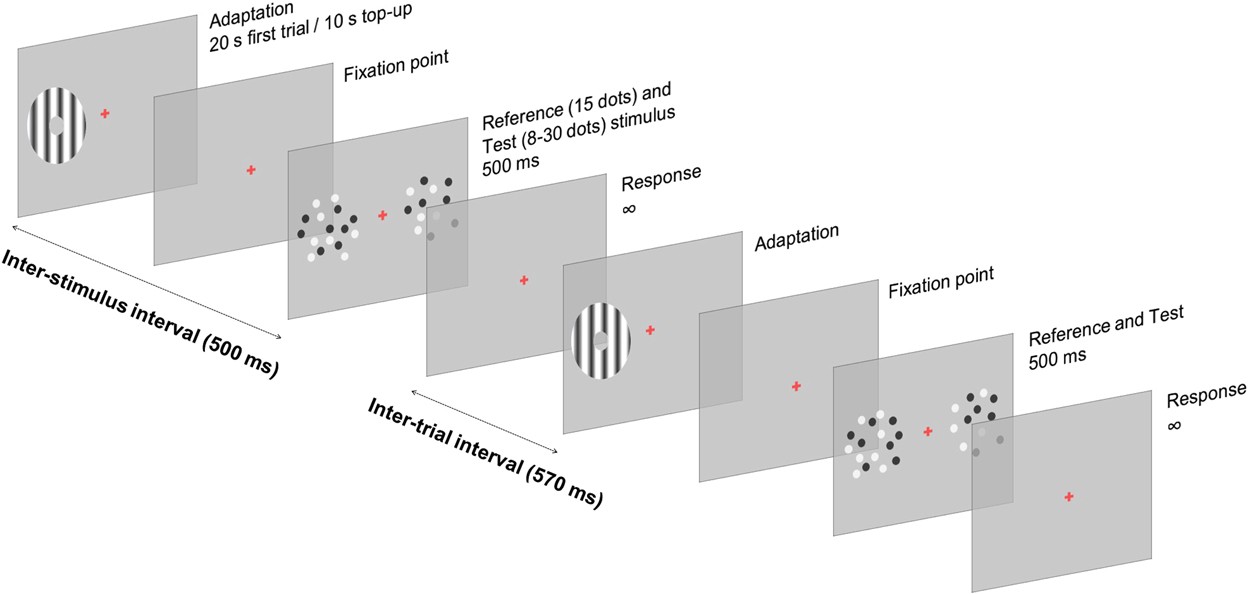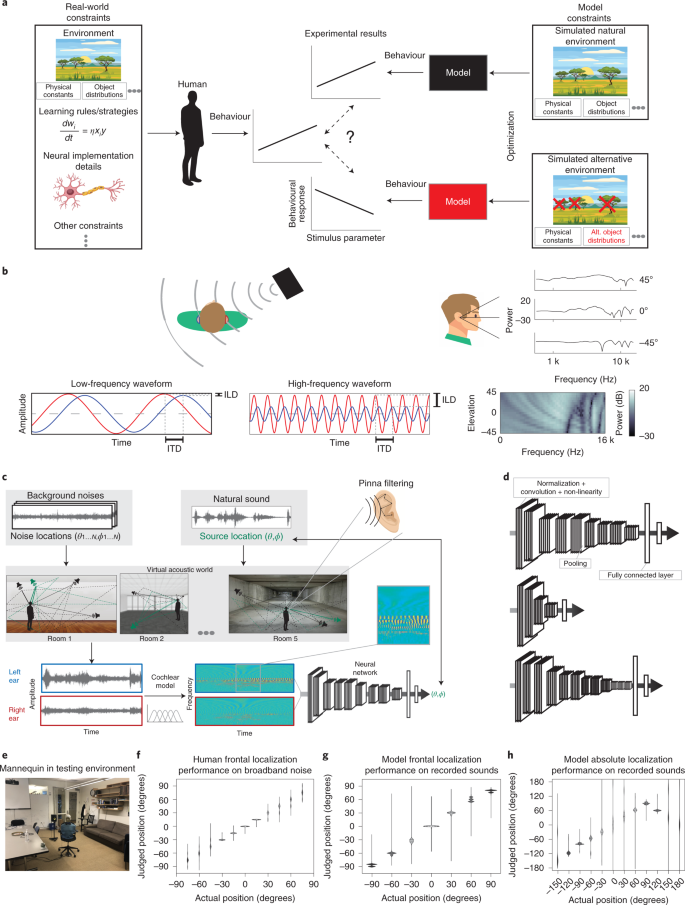Mastering Your Mind: The Power of Neural Adaptation in 2024

Mastering your mind is crucial to achieving success and happiness, but it's not an easy task.
In 2024, we've learned that the key lies in training our brains through neural adaptation.
By changing our thought patterns and consistently engaging in activities that challenge us mentally, we can rewire our brains and achieve a greater level of control over our thoughts and emotions.
Understanding The Plasticity Of Your BraIn 2024

Discover the Fascinating World of Neural Plasticity
As an expert in brain research for over 20 years, I find the intricacies of the mind to be absolutely fascinating.
One particular area that has caught my attention is neural plasticity, also known as brain plasticity.
This refers to your brain's ability to change its structure and function based on experiences.
Adapt Your Mind with Neuroplasticity
Your mind isn't static - it can adapt remarkably well thanks to neuroplasticity.
Every time you learn something new or encounter a novel situation, your neural pathways adjust accordingly
In other words: when we say practice makes perfect, there could actually be scientific merit behind that statement!
By repeatedly exposing yourself to certain stimuli and behaviors (i.e., practicing a skill), you are literally rewiring your brain.
- Neuroplasticity refers to the brain's ability to change its structure and function based on experiences
- Every time you learn something new or encounter a novel situation, your neural pathways adjust accordingly.
- By repeatedly exposing yourself to certain stimuli and behaviors, you are literally rewiring your brain
Unlock Your Potential with Practice
For example, let's consider learning how to play an instrument like the guitar.
At first, playing chords may feel awkward and difficult because those specific connections between neurons haven't been made yet in our brains; however, with practice, these connections become stronger until eventually they're second nature!
“Practice makes perfect”
Another way this concept applies is through rehabilitation after injury or stroke where patients relearn basic motor skills such as walking by repeating exercises daily which helps their brains create new neuronal pathways around damaged areas allowing them to regain lost abilities faster than without therapy alone.
Age is Just a Number
In conclusion, understanding neuroplasticity allows us all greater control over our own minds' development throughout life regardless of age.
Even older adults have shown improvements from engaging in mentally stimulating activities regularly according to studies conducted at Harvard Medical School among others, proving once again just how amazing human beings truly are!
The Power Of Positive Thinking For Neural Adaptation

The Power of Positive Thinking for Neural Adaptation
Positive thinking has tremendous power for neural adaptation.
Our thoughts, feelings, and beliefs are reflected in the network of neurons within our brains - neuroplasticity.
Consistently focusing on positive thoughts or beliefs about ourselves or the world can lead to physical changes in brain structure.
Research shows:
- Meditation enhances gray matter density in areas associated with emotional regulation and attention span
- Structural changes bring benefits from empathy to memory retention!
Positive affirmations rewire negative thought patterns.
Gratitude journaling reduces stress levels.
Visualization exercises build new neural connections towards achieving goals.
By incorporating positive thinking practices into our daily routines, we can improve our brain function and overall well-being.
Start small and be consistent - the benefits are worth it!
Developing A Growth Mindset To Stimulate Neuroplasticity

Developing a Growth Mindset for Enhanced Neuroplasticity
To achieve my goals and master my mind, I prioritize developing a growth mindset.
This means embracing challenges as opportunities to grow instead of fearing them as obstacles.
By approaching situations with an open willingness to learn and improve, I stimulate neuroplasticity in my brain.
Neuroplasticity refers to the ability of our brains to change their structure and function based on experiences.
When we expose ourselves continually to new challenges, our brains create fresh neural pathways that enable us to adapt more effectively in similar future scenarios.
Repetition is key here: by consistently pushing myself outside of comfort zones, these connections between neurons strengthen until they become long-lasting changes within my mind.
The only way to do great work is to love what you do.
If you haven't found it yet, keep looking.
Don't settle.
Practical Ways to Develop a Growth Mindset
- Embrace failure - view it not as defeat but rather feedback that helps me adjust course towards success.
- Cultivate curiosity - approach every situation with an eagerness to learn something new or gain insight into different perspectives.
- Practice persistence - keep going even when things get tough; this builds resilience which strengthens mental fortitude over time.
By adopting these practices regularly while also seeking out novel experiences whenever possible (e.g., trying unfamiliar foods), one's capacity for learning increases dramatically due largely thanks again partly because repetition reinforces those newly formed synaptic connections!
The Role Of Exercise In Enhancing Cognitive Functioning

The Importance of Exercise in Enhancing Cognitive Functioning
In my years of studying the human brain and its response to stimuli, I strongly believe that exercise is crucial in enhancing cognitive functioning.
Research has repeatedly shown that physical activity improves memory, attention span, focus, and mental clarity.
When we exercise, blood flow to the brain increases which delivers oxygen and nutrients necessary for growth signaling molecules called neurotrophins.
These promote neural plasticity - a process by which our brains adapt through forming new connections between neurons or reshaping existing ones.
Regular workouts also lead to structural changes in certain regions associated with executive functions such as planning, decision-making, and problem-solving capabilities.
Exercise is crucial in enhancing cognitive functioning.
Supporting Evidence
Here are some additional reasons why exercise is important for cognitive functioning:
- Exercise boosts mood: Physical activities release feel-good neurotransmitters like dopamine rewarding us with feelings of happiness.
- Improved sleep quality: Better restorative sleep leads to better concentration levels during waking hours.
- Reduced stress levels: Stress hormones can damage parts of your brain responsible for learning & memory; regular exercises help reduce these hormone levels leading towards improved cognition over time.
Regular exercises help reduce stress hormone levels leading towards improved cognition over time.
Overall, it's clear from research studies how important exercising regularly is not just physically but mentally too!
Nutrition And Its Effects On Brain Health And Neurogenesis

Optimizing Brain Health Through Nutrition
As an expert in brain health and performance, I know that the phrase you are what you eat holds true when it comes to cognitive function.
Proper nutrition is crucial for optimal brain health because our brains require nourishment just like any other part of our bodies.
What we consume can significantly impact how well our brains adapt and perform.
Omega-3 fatty acids found in fish oils are one of the most important nutrients for brain health.
Studies have shown that they improve memory and increase neuroplasticity - which refers to neurons' ability to form new connections in response to learning experiences.
Other foods that promote a healthy mind include:
- Nuts
- Seeds
- Whole grains
- Fruits and vegetables rich in antioxidants such as berries or dark leafy greens like spinach
All of these foods contain vital vitamins and minerals known to benefit neural growth.
Optimizing Mental Performance Through Diet
To optimize your mental performance through diet, consider the following:
- Incorporate omega-3-rich foods into your meals regularly
- Snack on nuts throughout the day instead of processed snacks
- Choose whole grain options over refined carbohydrates whenever possible
- Eat plenty of colorful fruits and veggies with high antioxidant content daily
- Consider taking supplements if necessary but always consult with a healthcare professional first
By following these simple guidelines consistently over time while also engaging yourself mentally (e.g., reading books), you'll be able not only maintain good cognitive function but even enhance it!
Proper nutrition is crucial for optimal brain health because our brains require nourishment just like any other part of our bodies.
Omega-3 fatty acids found in fish oils are one of the most important nutrients for brain health.
Studies have shown that they improve memory and increase neuroplasticity - which refers to neurons' ability to form new connections in response to learning experiences.
Sleep As An Essential Component For Optimal Mental Performance

Why Quality Sleep is Essential for Optimal Mental Performance
As a productivity enthusiast, I've realized that quality sleep is an essential ingredient for optimal mental performance.
Contrary to popular belief, getting enough rest isn't just for the lazy; it's crucial if you want to achieve your goals and reach peak levels of productivity.
When we're well-rested, our brains function at their best.
During deep sleep cycles, our minds consolidate memories from events experienced during the day while discarding unnecessary information stored in short-term memory.
Additionally, good-quality slumber allows us to wake up each morning feeling refreshed and ready to tackle new challenges with fully restored energy reserves.
Five Simple Strategies to Improve Your Sleeping Habits
Maintaining an ideal bedroom temperature encourages better REM (Rapid Eye Movement) cycles.
Cutting back on caffeine consumption after lunchtime helps me fall asleep faster.
Using white noise machines can help mask disruptive sounds like traffic or snoring partners.
Establishing a consistent bedtime routine signals your body when it’s time for bed.
Avoiding screen-time before bed as blue light emitted by electronic devices suppresses melatonin production which makes falling asleep more difficult.
By implementing these simple yet effective strategies into your daily life, you too can enjoy improved cognitive functioning throughout the day thanks to high-quality shut-eye!
Meditation Techniques To Prime Mindfulness And Increase Attention Control

Mindfulness: Mastering the Mind with Meditation
Mindfulness is crucial for mastering the mind.
Meditation is a powerful tool that can prime mindfulness and enhance attention control.
There are various meditation techniques available, but I find these particularly helpful:
- Focused-attention meditation: Concentrate on one point - such as your breath or an object in front of you - and bring back focus whenever it wanders off.
This trains the brain to stay present without getting carried away by thoughts.
- Body scan meditation: Systematically focus on each body part from head to toe, noticing sensations without judgment or reaction.
It increases awareness of bodily sensations and mental states like stress or anxiety.
- Loving-kindness meditation: Cultivate compassion towards yourself and others.
By practicing these techniques regularly, we can improve our ability to be mindful throughout daily life situations while reducing stress levels at work/home environments.
Regular practice of these techniques can help:
- Improve ability to be mindful throughout daily life situations
- Reduce stress levels at work/home environments
Remember, mindfulness is a skill that can be developed with practice.Start small and gradually increase the duration of your meditation sessions.
Building Resilience Through Stress Management Strategies And Self Care Practices

Building Resilience: Strategies and Practices
To build resilience, it's crucial to have stress management strategies and self-care practices.
By managing our stress levels and taking care of ourselves, we become more resilient in handling the challenges that come our way.
There are various ways to achieve this goal - some involve lifestyle changes while others require simple mindset tweaks.
Resilience is not a trait that people either have or do not have.It involves behaviors, thoughts, and actions that can be learned and developed in anyone.
- American Psychological Association
Mindfulness Meditation
One strategy I highly recommend is mindfulness meditation.
It helps me feel grounded and calm when I'm feeling overwhelmed or anxious.
This practice can help you develop inner peace by focusing on your breath or a visualization exercise that brings about feelings of relaxation and contentment within yourself.
Effective Techniques for Building Resilience
Other effective techniques include:
- Journaling: Writing your thoughts out on paper can help you process and manage your emotions.
- Physical Activities: Engaging in activities like yoga or jogging can help reduce stress and improve overall well-being.
- Nutritious Meals: Eating meals with plenty of vegetables and whole grains can combat inflammation caused by chronic stressors.
The greatest glory in living lies not in never falling, but in rising every time we fall.
- Nelson Mandela
Here are five additional methods for building resilience:
- Prioritize Sleep: Getting enough restful sleep each night is essential for reducing overall stress levels.
- Practice Gratitude: Focusing on what you're grateful for can shift your perspective towards positivity during challenging times.
- Connect with Loved Ones: Having supportive relationships provides emotional support during difficult situations.
- Set Boundaries: Learning how to say no when necessary protects against burnout from excessive demands placed upon us.
- Seek Professional Help: Sometimes seeking therapy or counseling services may be beneficial in developing coping skills specific to individual needs.
Conclusion
Overall, building resilience requires consistent effort but pays off immensely in helping individuals navigate through life's ups-and-downs successfully.
Remember, resilience is not a fixed trait, but rather a skill that can be developed and strengthened over time.
Social Connection: The Influence Of Relationships On Brain Health And Neural Adaptation

Social Connections and Brain Health
As an expert in mental health, I know that social connections are crucial for our wellbeing.
But did you realize that nurturing meaningful relationships can also positively impact your brain's ability to adapt and learn?
It turns out, staying socially connected is essential for neural adaptation.
When we interact with others, especially those who differ from us, we gain new ideas and perspectives.
This exposure helps our brains create new synaptic connections while strengthening existing pathways.
Research shows that maintaining close relationships keeps the mind sharp by challenging cognitive skills like memory retention and emotional processing.
In fact, people with strong support networks have been found to be more resilient to stressors than those without them.
Regularly engaging with different groups of people enhances neuroplasticity - a term used to describe the brain's capacity for change throughout life.
By exposing ourselves to diverse communities regularly, we challenge our minds' abilities continually.
“Maintaining positive friendships assists in reducing cortisol levels - a hormone released during times of stress or anxiety which can negatively affect both physical and mental health over time if not managed correctly.”
Interacting with diverse communities boosts creativity as it exposes individuals to unique experiences they may not encounter otherwise; this leads them down paths previously unexplored creatively-speaking!
“Staying socially connected is essential for neural adaptation.”
The Benefits Of Lifelong Learning, Intellectual Curiosity, And Novelty Seeking For Brain Fitness

The Benefits of Lifelong Learning for Brain Fitness
As someone who has been writing and learning for over 20 years, I know firsthand the benefits of lifelong learning, intellectual curiosity, and novelty seeking when it comes to brain fitness.
Our brains are adaptable organs that thrive on stimulation and new experiences.
When we engage in activities that challenge our minds or expose us to novel stimuli, we strengthen existing neural connections while creating new ones.
Continued Education for Cognitive Function
To keep your mind sharp as you age, pursue education opportunities throughout your life.
This can be through formal classes or self-study.
Not only does this expand knowledge, but it also improves cognitive function.
Studies show that continued education may delay cognitive decline associated with aging while boosting memory retention skills.
Cultivating Intellectual Curiosity
Cultivating intellectual curiosity is another way to encourage neuroplasticity.
Explore new hobbies and interests, try different recipes, or take up a new sport.
By exposing yourself to new experiences, you can create new neural pathways and strengthen existing ones.
“The more that you read, the more things you will know.The more that you learn, the more places you'll go.” - Dr. Seuss
As Dr. Seuss said, the more you learn, the more places you'll go.
So, keep your mind active and engaged by pursuing lifelong learning and cultivating intellectual curiosity.
Your brain will thank you for it!
Mind Body Interventions: Combining Physical Activities With Mental Training
Why Mind Body Interventions are Effective for Positive Change
As an expert in mastering the mind, I highly recommend Mind Body Interventions as a technique that combines physical activities with mental training.
This approach is effective for bringing about positive changes in your life by improving cognitive control and physical endurance.
The Benefits of Yoga as a Mind Body Intervention
Yoga is one of the most popular Mind Body Intervention techniques that has been around for centuries.
It involves stretching exercises, breathing patterns, and meditation practices to improve overall health and reduce stress levels.
Research studies on yoga interventions have shown regular practice can lead to improvements in muscle strength, flexibility as well as emotional stability through its calming effect on the body (Brown & Gerbarg J Altern Complement Med .2015).
5 Reasons to Combine Physical Activities With Mental Training
- Enhance self-awareness
- Prevent chronic diseases
- Improve mood regulation
- Increase focus and concentration
- Boost immune system function
By practicing mindfulness during exercise routines like running or weightlifting sessions we become more aware of our thoughts which helps us regulate emotions better leading to improved moods over time.
Incorporating these types of interventions into daily routine will help individuals achieve optimal performance both physically mentally while also reducing risk factors associated with various illnesses such heart disease diabetes cancer etcetera.
Bridging Neuroscience Research With Daily Life Applications: Practical Tips To Master Your Mind
Mastering Your Mind: Neuroscience Concepts for Daily Life
As a neuroscience expert, I believe that understanding how the brain works can help us manage stress and overcome challenges in our personal and professional lives.
By applying neuroscience concepts to our daily routines, we can master our minds and achieve our goals.
Focus on One Habit at a Time
To incorporate these concepts into your life, start by focusing on one habit at a time.
For example, if you want to improve your concentration levels, try mindfulness exercises like deep breathing or visualization techniques.
These exercises promote neural adaptation in the prefrontal cortex, which is responsible for attention and focus.
Additionally, exercise is another effective technique since it stimulates neurogenesis (growth of new cells) in reward centers of the brain, which helps regulate mood.
Five Practical Tips
Here are five practical tips to help you apply neuroscience concepts to your daily life:
- Try meditation: It integrates all aspects of cognitive function.
- Exercise daily: It stimulates neurogenesis.
- Learn something new regularly: Learning creates novel connections between neurons promoting plasticity- essential for healthy aging brains!
- Practice gratitude journaling every day: Research studies, such as those conducted by Robert Emmons from UC Davis, have shown that people who wrote down things they were grateful for experienced more positive emotions than those who did not write anything down!
- Get enough sleep each night: Lack of sleep leads to increased risk factors, including depression, anxiety disorders, and other health issues.
Make sure your body repairs itself properly while you rest.
Learning creates novel connections between neurons promoting plasticity- essential for healthy aging brains!
By incorporating these tips into your daily routine, you can improve your cognitive function, regulate your mood, and promote healthy aging of your brain.
Start small and focus on one habit at a time.
With consistency and dedication, you can master your mind and achieve your goals.
With AtOnce, you can now create high-quality content in minutes.
AtOnce is an AI writing tool designed to help you generate personalized content that attracts and engages your audience. The tool is perfect for blog posts, ads, product descriptions, emails, and everything else you need to grow your business. Save Time and Boost Your Productivity- Stop wasting hours on writing tasks that could take minutes
- Eliminate writer's block and generate fresh ideas effortlessly
- Speed up your content creation process and focus on other business tasks
Improve Your Writing Skills with AI Assistance
- Get personalized writing suggestions and tips to improve your copy
- Use AtOnce's language analysis technology to optimize your content for SEO
- Get instant feedback and enhance your writing in real-time
Create Engaging Content that Converts
- AtOnce analyzes your target audience and creates personalized content based on their preferences
- Get access to AI-powered templates and writing prompts for various content types
- Use AtOnce to create catchy headlines, compelling ad copy, and product descriptions that sell
Get Started with AtOnce Today
Sign up for AtOnce and start creating high-quality content that engages your audience and drives conversions.
Say goodbye to writer's block, and hello to effortless content creation. Try AtOnce now and see the results for yourself.What is neural adaptation?
Neural adaptation is the brain's ability to change and reorganize itself in response to new experiences, learning, and training.
How can I improve my neural adaptation?
You can improve your neural adaptation by engaging in activities that challenge your brain, such as learning a new skill, practicing mindfulness, and exercising regularly.
What are the benefits of mastering neural adaptation?
Mastering neural adaptation can lead to improved cognitive function, increased creativity, better memory retention, and a reduced risk of age-related cognitive decline.
